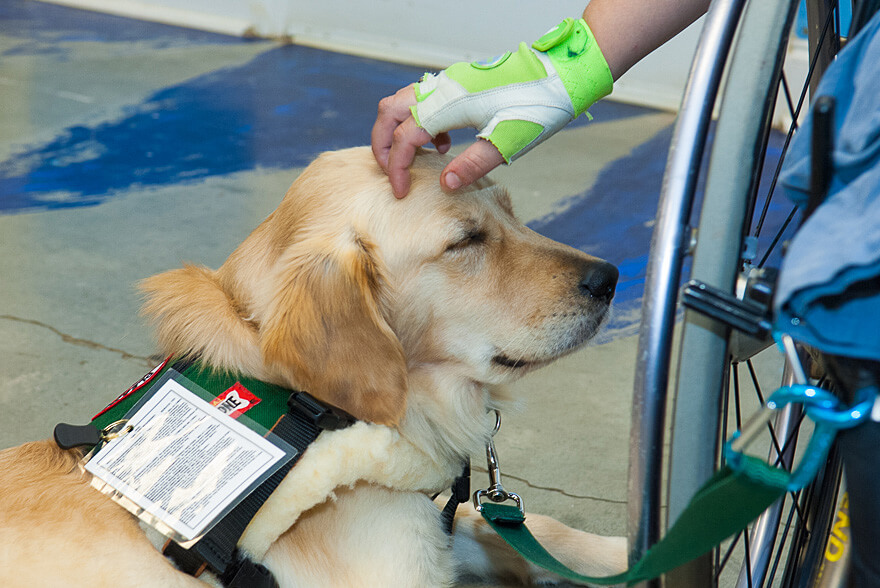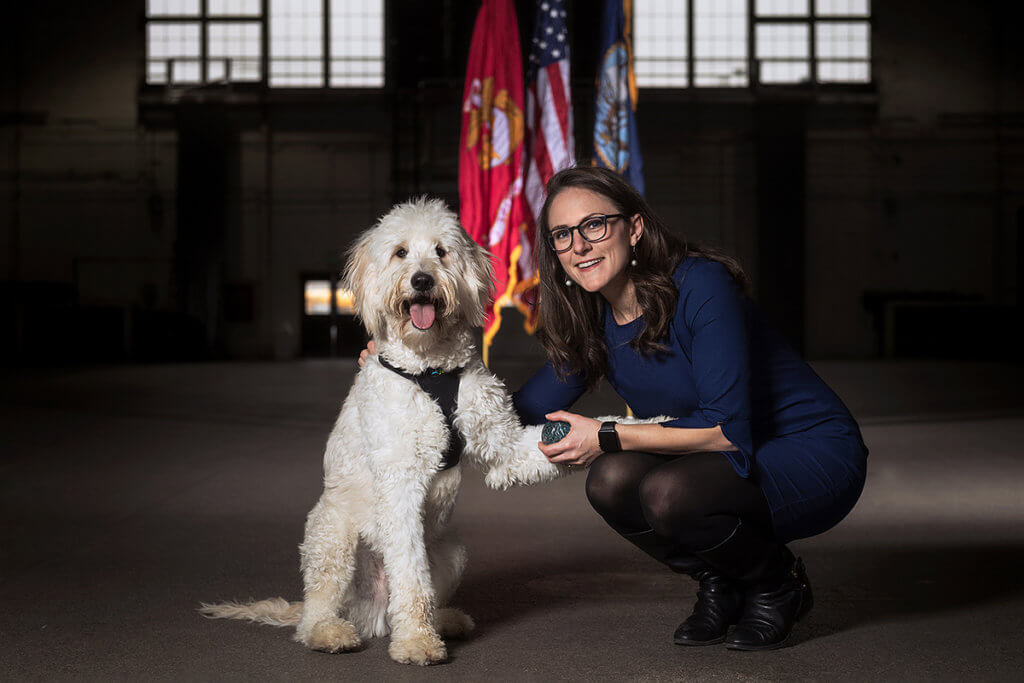
Low self-confidence. Social isolation. Longing for independence. Service dogs have been long thought to help individuals with physical disabilities find some relief from these feelings. The waiting lists for these dogs continue to grow, but the evidence to support their effectiveness has been missing – until now.
A recent study led by researchers in the Purdue University College of Veterinary Medicine shows how service dogs can have measurable positive effects on the health and well-being of individuals with physical disabilities. Kerri Rodriguez and Dr. Maggie O’Haire of the College’s Center for the Human-Animal Bond led the study, which was published in Disability and Rehabilitation and funded by Elanco.
Dr. O’Haire is associate professor of human-animal interaction and Rodriguez is a graduate student of human-animal interaction in the College’s Department of Comparative Pathobiology. Their focus during this study was to discover just how much these dogs affected the overall well-being of their handlers. A major finding of the study was how service dogs affect the psychosocial health of their handlers, which is an individual’s state of mental, emotional, and social well-being.
The study recruited 154 individuals from the databases of national service dog provider Canine Assistants to participate in a survey. A total of 97 individuals had a service dog from Canine Assistants while 57 were on a waiting list to receive one.
“We found that compared to individuals on the waitlist, those who had a service dog had significantly better psychosocial health including better emotional, social, and work/school functioning. However, we found that having a service dog was surprisingly not related to other indicators of well-being such as anger, sleep quality, or social companionship,” Dr. O’Haire said. “These findings help shed light on the fact that having a service dog may impact some areas of life more than others.”
Service dogs – more specifically, mobility and medical alert service dogs – can be placed with individuals with a variety of different conditions or disabilities, such as seizures disorders, quadri- or paraplegia, or cerebral palsy. Service dogs can benefit them through helping with mobility – including helping with basic tasks such as opening and closing doors – or they can be trained to recognize and respond to the onset of a medical emergency, such as a seizure.

Kerri and Dr. O’Haire said the findings help shed light on how service dogs may impact their handler in ways that extend beyond what they are directly trained for. “Our findings are important because they empirically validate the numerous anecdotal reports from individuals with service dogs that say that these dogs really have an impact on their life,” Kerri said.
But if service dogs provide these sorts of benefits, what about dogs in general? “We are still unsure how having a service dog and a pet dog may differ,” Kerri explained. “Although these service dogs are extensively trained to provide medical or physical assistance, we know that their companionship and unconditional love are important factors in the relationship.” Kerri also said future research will benefit from measuring well-being, self-esteem, or sleep quality both before and after an individual receives a service dog to measure change over time.
Dr. O’Haire also has been leading research regarding how psychiatric service dogs may help veterans with PTSD. Click here to view a news release and video summarizing this research, which so far has revealed how service dogs might offer both psychosocial and physiological benefits to veterans. Dr. O’Haire’s research group is currently conducting a clinical trial that is studying veterans with and without service dogs over an extended period of time.
Dr. O’Haire’s research on service dogs and veterans with PTSD has garnered major media attention. In fact, it was #2 in Purdue’s list of the Top 10 research news stories released in 2018. On average, each of the top ten stories were covered by 225 media outlets, reaching an estimated total potential audience of 224 million readers (not including social media shares). Click here to view a story about the Top 10 Purdue research stories.
